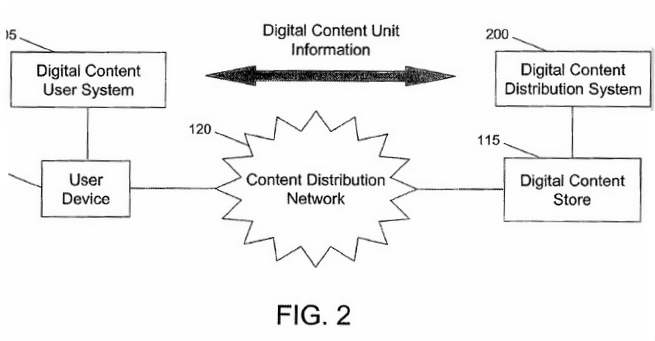Pirate sites that let visitors download ebooks, MP3 music, movies and TV shows typically apply a P2P (Peer-to-Peer) technology like BitTorrent for content downloads, because P2P balances the required resources among downloaders. Even though P2P has managed to establish a bad name (probably because of misunderstanding) for a universal technology, Apple has patented a P2P system for distributing commercial digital content products to customers.
The principle of the patent “US 8,934,624 B2 Decoupling rights in a digital unit from download” is simple: the actual content and a license required to open the content are two separate entities that can be downloaded, copied, moved, and purchased independent from one another.

For example, I purchase an ebook from the Apple iBooks store. I download both the content file and a license from the store. Then, I can share the content to anyone, for instance, via a P2P network. If someone wants to open the content file I shared, she can get a license from the store I originally purchased the ebook.
The content is encrypted until a key obtained in the license decrypts the content. Apple ponders in the patent application that the system could lead to flexible pricing of content products. Because the online store doesn’t have to manage all content downloads, it could have different prices for license-only buyers (probably lower price) and for content-and-license buyers (probably higher price).
Lower prices for digital products are always welcomed by customers, but other than that, Apple’s patent doesn’t mean dramatic changes to content buyers’ lives. Today, digital products downloaded from the iTunes or iBooks store are packages that include both the content and the license. If you want to share it, you can transfer the file to someone else, but there is no (legal) way to open it. The only option for someone else to open the shared digital content is to visit the Apple store and download the whole package from there.
